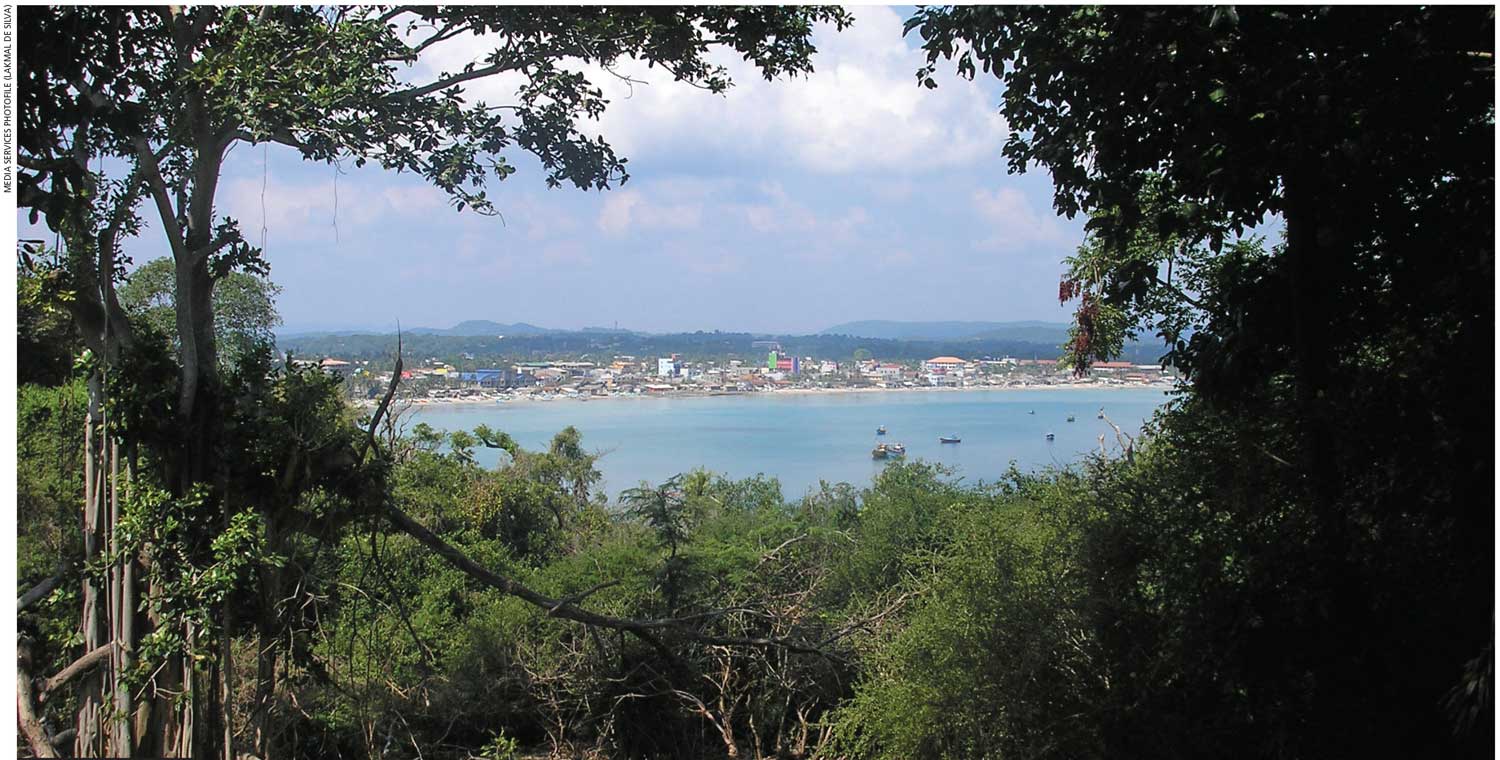STATE OF THE NATION
VIEWPOINTS
GOOD TIME TO GO EAST AGAIN, YOUNG MAN!
Wijith DeChickera muses if the nascent superpower that conquered the South Pole of the moon has grand designs on our Eastern Province

Whatever critics of government might essay about its leaders’ ‘legitimacy,’ it appears the incumbent administration is getting some things right.
One of these is the management of perceptions about how the first tranche of the IMF’s Extended Fund Facility (EFF) of US$ 2.9 billion – a timely 330 million dollars – brought the country from bankruptcy’s abyss to the cusp of economic recovery.
However superficial the gains made regarding ground conditions may seem to the marginalised bearing the brunt of a brutal fiscal regime, there is little doubt – among neoliberal camp followers – that government is showing the right signs of life.
Salutary developments such as the suspension of the fuel quota recently brought smiles to motorists’ lips while it served to restore customary jams to congested roads.
This above all else is the benchmark in coteries where business confidence rides high on the money belt – even if our macro socioeconomic reality is still in low gear despite getting monetary policy right – that the nation at large has taken the corner.
The recent nomination of Central Bank Governor Nandalal Weerasinghe to Global Finance magazine’s ‘Top 21’ bears testimony to this trajectory.
And the sense in cocktail circuits and other informal, influential ‘chambers of enterprise’ is that commerce and industry no longer need to grind along – especially with the International Monetary Fund’s second tranche (US$ 350 million dollars) looming on the horizon, following its review of Sri Lanka’s performance.
Rest assured however, that quotidian concerns – the price of petrol at the pump, as well as the availability and affordability of gas, diesel and kerosene, and a rack of other essentials including vital medicines – keep provincial householders far from the centres of power awake at night.
Especially to the reality of how (albeit now, single digit) inflation and a still high cost of living affects lower socioeconomic strata far more than champagne drinking neoliberals.
But let’s not worry too much about the hoi polloi, shall we?
Here is yours truly and like-minded sceptics raising a glass – of cut-price liquor at double the cost and half the proof, chased with frozen ‘Labugama champagne’ – to the tried and tested (and typically, failed) IMF formula of trickle-down economics!
And if your morning caviar on toast is making you dyspeptic about taking mouthfuls of titbits from a mundane scribe, maybe scrambled egg off the plate of a sagacious master thinker might appetise you?
“Neoliberal democracy: Instead of citizens, it produces consumers. Instead of communities, it produces shopping malls. The net result is an atomised society of disengaged individuals who feel demoralised and socially powerless.” You tell ’em, Prof. Noam Chomsky!
The American academic and public intellectual who has been speaking truth to power stateside for decades concludes: “In sum, neoliberalism is the immediate and foremost enemy of genuine participatory democracy; not just in the United States but across the planet; and will be for the foreseeable future.”
Caught between the rock of bankruptcy, and the hard place of having hit and continuing to stay at rock bottom of an increasingly internationalising global milieu, it would be imprudent to look the IMF’s gift (I almost wrote ‘Trojan’) horse in the mouth.
But having been through and not benefitted fundamentally from 16 International Monetary Fund so-called ‘bailouts’ before, Sri Lanka’s present predicament begs the question of whether remaining in the fold of neoliberalism – sans independent agency in our salvation or a raft of other instruments redounding to multilateral cushioning – is in our island nation’s best interests.
Let’s not even mention getting fiscal fundamentals right.
All of this comes with a caveat emptor (‘let the buyer beware’ – or at least be aware!). That large-scale developmental projects as recently elaborated on by President Ranil Wickremesinghe entail a host of advisory cautions as much as they embrace assertive conditionalities.
Assertive conditionalities such as that in exchange for India’s participation in the mammoth Trincomalee District Strategic Development Plan, it’s implicit between neighbours that erstwhile Chinese hegemony in the island’s progress would be counterpointed if not thwarted; the Indian defence establishment would follow civilian developers into our North-Eastern region; and much sociopolitical power would shift to the east.
The proposed implementation of the 13th Amendment – coupled with the tectonic movement of political capital, GDP growth, and state and investor resources to the north-east – runs the risk of aligning a newly developing quadrant of Sri Lanka with Tamil Nadu.
This, together with key infrastructure – such as a land bridge, symbiotically linking the political masses as perhaps never before – in the same breath as singing hosannas to our governors...
Advisory cautions include that to ensure envisioned developments go ahead, government will have to pull sundry IMF rabbits out of Western-style top hats – vital successive tranches – to secure a no longer postponable presidential election victory ahead of legitimising a second term for the ‘incumbent-by-default.’
As Chomsky intimated, ‘genuinely participatory democracy’ must not be hijacked by consumerism, insidious agendas or the will of leaders only a few want and no one much voted for.




